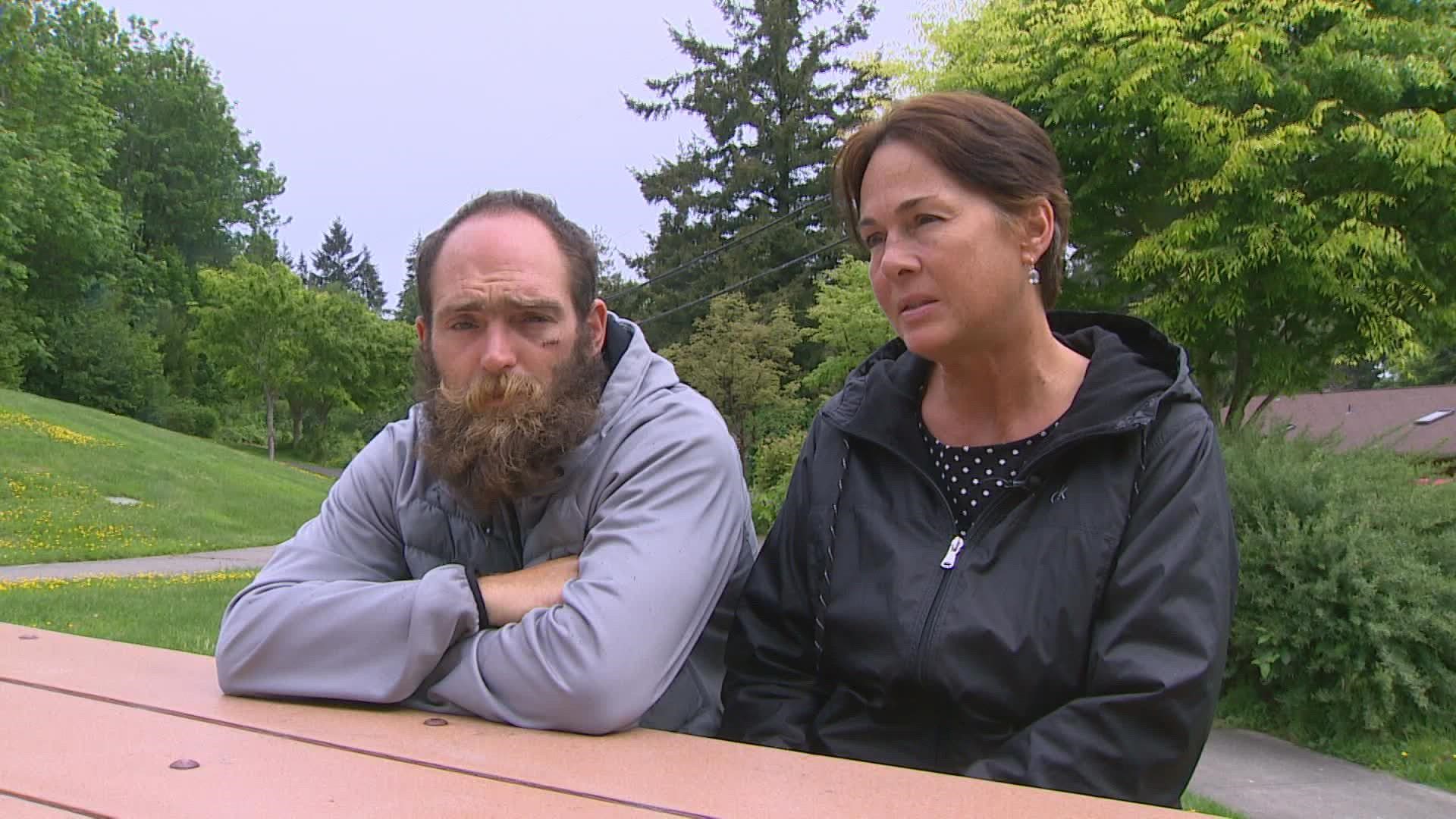SNOHOMISH COUNTY, Wash. — A mother and her son who has a traumatic brain injury (TBI) could soon be homeless because they can't find a facility to properly care for him.
It has been 12 grueling years since the motorcycle crash that changed everything for Rhonda Johnson and her son Brandon.
"This was done to him," Rhonda Johnson said. "It’s not his fault."
Brandon Johnson suffered a traumatic brain injury in the wreck shortly after his 18th birthday.
He was doing ok for a while. He was even able to live on his own, but then his condition deteriorated and he turned angry.
"He would stand on his porch and yell, see people in the trees," Rhonda Johnson said. "There is paranoia and there are delusions."
Because of his outbursts and disturbing behavior, Rhonda and Brandon keep getting kicked out of wherever they live.
Brandon Johnson has also been arrested at least 40 times for minor altercations. He has a sex crime on his record for kissing a woman's hand without her consent, which makes it especially difficult to get an apartment.
They've repeatedly worked with the Department of Social and Health Services (DSHS) and tried adult family homes, assisted living facilities and subsidized apartments, none of which have worked.
Rhonda Johnson has even tried to have her son committed to a psychiatric hospital, but that didn’t work either.
"They say he doesn’t meet a threshold. He’s not a threat to himself or to others," she said. "But he is a threat to our livelihood because we can’t live anywhere. It’s, it’s absurd. It’s surreal that there is nowhere for him to go."
The state does have a Traumatic Brain Injury Advisory Council to assist the 145,000 people living with TBIs. It has a budget of about $3 million, but none of that money is used for housing.
According to the DSHS website, the state legislature authorized DSHS to develop Enhanced Services Facilities (ESF) around 2013. This new category of licensed residential facility will provide a community placement option for individuals whose complicated personal care and behavioral challenges do not rise to a level that requires an institutional setting.
Individuals are referred to an ESF if they are coming out of state and community psychiatric hospitals or have no other placement option due to their complex behavior, medical, chemical dependency and/or mental health needs.
"We do have one of the top long-term care systems in this country, overall," said DSHS spokesman, Chris Wright. "There are options, but in situations like this I’m sure everybody would like more."
Rhonda Johnson had to quit her job as a paralegal to care for her son.
They live on a government check and are staying in motels or with friends but those stays are always short-lived because of Brandon Johnson's issues.
Rhonda Johnson is hoping to find an affordable place somewhere in rural Snohomish County where Brandon can live without disturbing people, but that, too, is proving very difficult because of rising rents and their limited income.
For now, she’s just trying to help her son survive.
"It’s like when you try to save someone from drowning and you go down too," Rhonda said, as Brandon gave her a hug. "What can you do? But I have to try."

